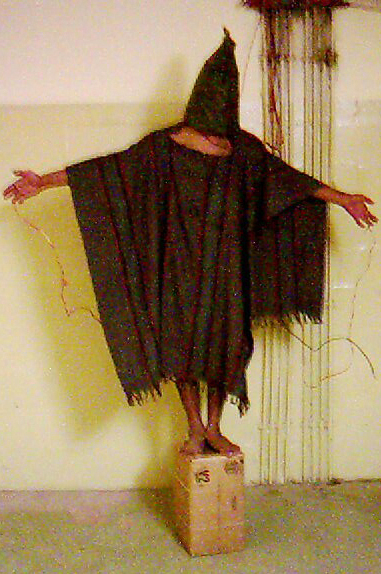NEW YORK — The U.S. must release photographs showing abuse of detainees in Iraq and Afghanistan, a federal judge has ruled in a long-running clash over letting the world see potentially disturbing images of how the military treated prisoners.
U.S. District Judge Alvin Hellerstein’s ruling Friday gives the government, which has fought the case for over a decade, two months to decide whether to appeal before the photos could be released.
The American Civil Liberties Union has been seeking to make the photos, including images from the infamous Abu Ghraib prison in Iraq, public in the name of holding government accountable.
“The photos are crucial to the public record,” said Jameel Jaffer, ACLU deputy legal director. “They’re the best evidence of what took place in the military’s detention centers.”
The Defense Department will make any further responses in court, spokesman Lt. Col. Myles Caggins III said.
The fight over the photos reaches back to the early years of the wars in Iraq and Afghanistan, and it invokes the images of abuse at Abu Ghraib that sparked global outrage after they emerged in 2004 and 2006. Early in the 2004 lawsuit, the ACLU pointed to the Abu Ghraib photos as priority examples of records the organization was seeking on the treatment of detainees.
It’s unclear how many more photos may exist. Hellerstein said some photos he had seen “are relatively innocuous while others need more serious consideration,” and he has ruled that any images that would be released would be redacted to protect identities of people in them.
Some photos, taken by service members in Iraq and Afghanistan, were part of criminal investigations of alleged abuse. The government has long argued that releasing the photos could incite attacks against U.S. personnel abroad, and officials have said that risk hasn’t abated as the U.S. military role in Iraq and Afghanistan lessened.
Indeed, “the danger associated with release of these photographs is heightened now,” amid the rise of the Islamic State militant group, Navy Rear Adm. Sinclair Harris, the vice director for operations for the Joint Chiefs of Staff, said in a December court filing. Islamic State, he said “would use these photographs to further encourage its supporters and followers to attack U.S. military and government personnel.”
The ACLU said it was inappropriate to give the government that kind of censorial power.
Amid the suit, Congress passed a 2009 law allowing the government to keep the photos secret if the secretary of defense certified that unveiling them would endanger U.S. citizens or government or military personnel.
Send questions/comments to the editors.



Success. Please wait for the page to reload. If the page does not reload within 5 seconds, please refresh the page.
Enter your email and password to access comments.
Hi, to comment on stories you must . This profile is in addition to your subscription and website login.
Already have a commenting profile? .
Invalid username/password.
Please check your email to confirm and complete your registration.
Only subscribers are eligible to post comments. Please subscribe or login first for digital access. Here’s why.
Use the form below to reset your password. When you've submitted your account email, we will send an email with a reset code.